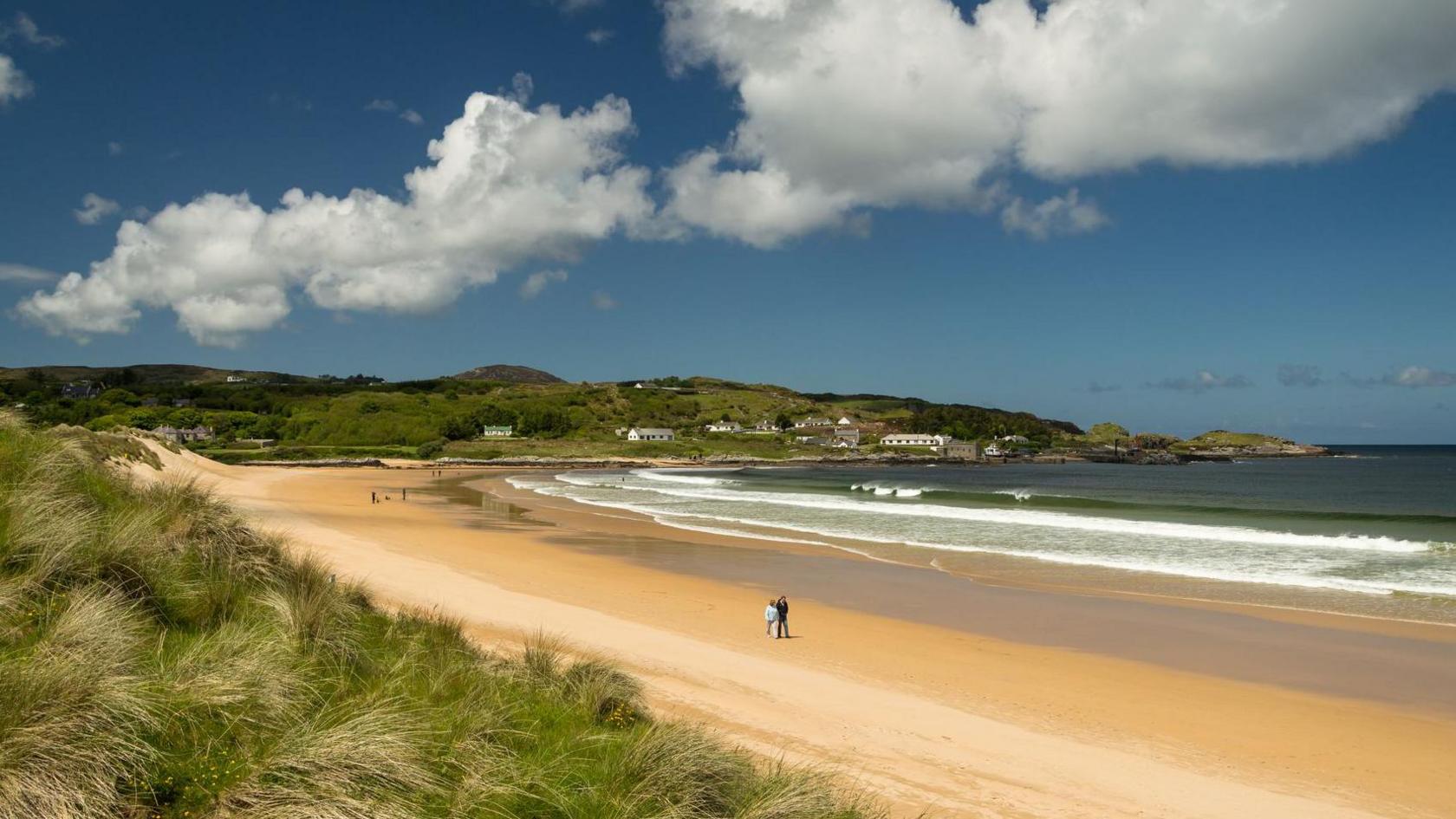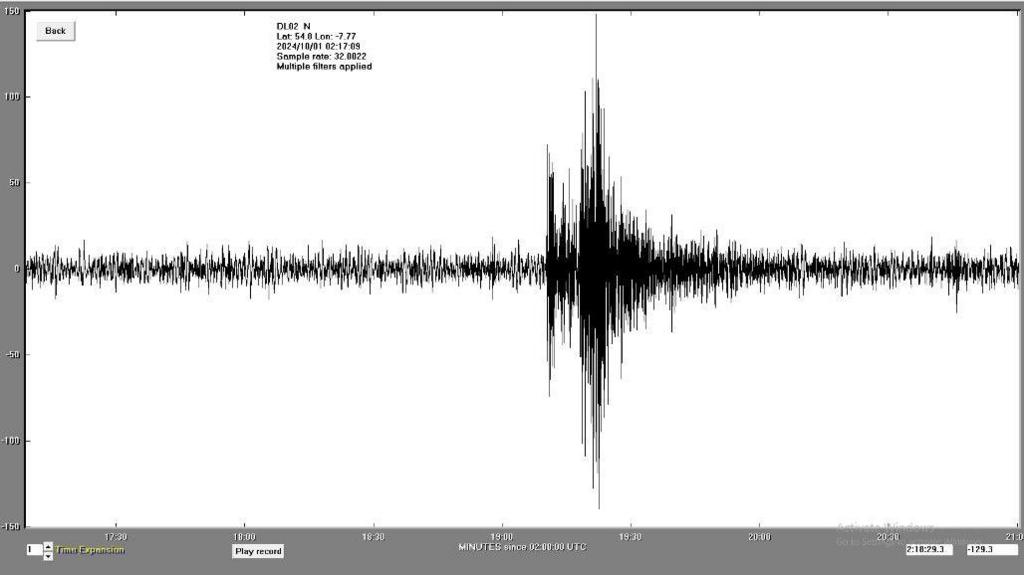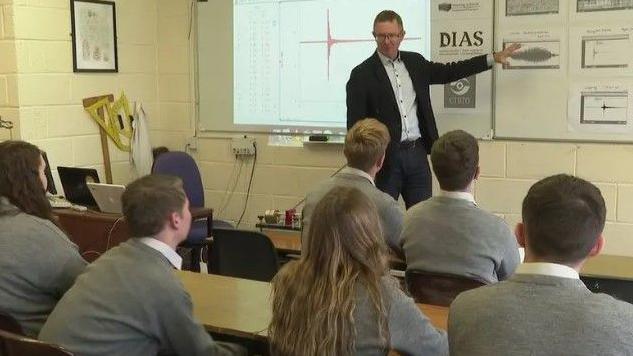'Rather small earthquake' in County Donegal

County Donegal is a hotbed of seismic activity
- Published
A minor earthquake has been recorded in Culdaff, County Donegal, on school equipment in the Republic of Ireland.
Brendan O'Donoghue, who teaches physics at St Columba's College, which is part of the worldwide Seismology in Schools project, said their equipment recorded a 0.9 magnitude earthquake from the area.
The college in Stranorlar is one of the most successful schools in the network, tracking more than 1,000 tremors since it joined the scheme.
County Donegal itself is a hotbed of seismic activity - thanks to its geology - and the school's equipment frequently records tremors that people rarely notice.

The school’s equipment often picks up quakes in the area, but has also previously picked up sporting events and even weapons testing.
Speaking to BBC News NI, Mr O'Donaghue said their equipment picked up the small earthquake at 02:18 local time on Wednesday.
"The equipment picked it up from an area known as the Malin Sea, then, later on it picked up a 2.2 in the North Channel."
Mr O'Donaghue said a quake of 0.9 magnitude is not something that would likely have been felt by anyone in the Culdaff area, but said it highlighted just how much seismic activity was happening across the area.
The Irish National Seismic Network (INSN) described it as "a rather small earthquake" and said "similar events occur from time to time, especially in Donegal".

Brendan O'Donoghue talking to his class about earthquakes
What causes an earthquake?
The Earth's surface is made up of huge pieces of flat rock called tectonic plates.
They float on top of a layer of softer rock called the mantle.
Tectonic plates move very slowly, over millions of years, and where they come together is called a fault.
When the plates rub together, friction forces waves of energy to come to the surface.
This causes tremors and shakes - and these are called earthquakes.
Earthquakes can happen anywhere there is a fault or weakness in the crust, however, major earthquakes usually only occur at plate boundaries.